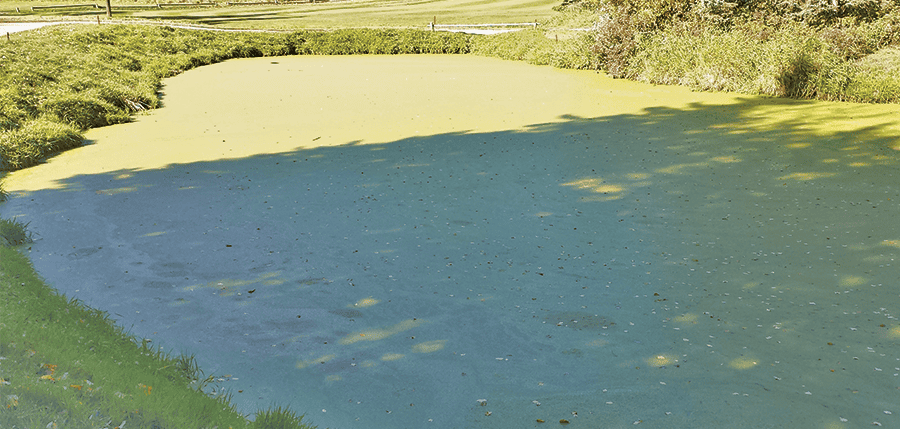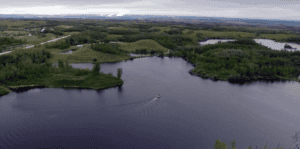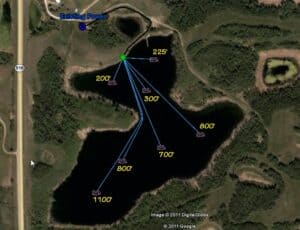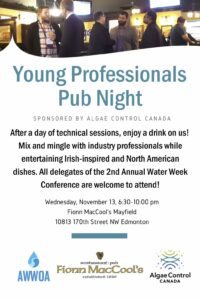
POND STRATIFICATION
HIGH-SPEED, HIGH-IMPACT CHANGE The water in your pond naturally seeks thermal equilibrium via stratification. Stratification


Eutrophication is the ecosystem response to the addition of artificial or natural substances, mainly phosphates, through detergents, fertilizers, or sewage, to an aquatic system. This response does occur naturally but is often accelerated by human activities.
Excess nutrients, primarily nitrogen and phosphorus, cause excess algae and weed growth. When the weeds and algae die, they decompose and the nutrients contained in that organic matter are converted into inorganic form by microorganisms. This process consumes oxygen resulting in a reduction in the concentration of dissolved oxygen in the water. The depleted oxygen levels can result in fish kills.
The decomposed remains of the algae and weeds causes the nutrients to cycle back into the water column or settle to the bottom muck layer. These nutrients then contribute to the future growth of algae and weeds creating a vicious cycle of nutrient loading.
Left unmanaged, eutrophic water bodies can fill up with organic muck to such a level that costly dredging is the only solution.
Ideally, early action to prevent and or arrest algae blooms is your first step. After an algae bloom, it is a very useful exercise to determine the cause and, if possible, remediate ecosystem imbalances, including nutrient loading. Later stage solutions, including aeration, phosphorus inactivation or dredging can be very effective, even for aquatic systems that have transitioned to swampland.
Depending on the stage of eutrophication in your pond or lake, aeration, bioaugmentation or even mechanical dredging may be called for. Strategies to reduce nutrient loading in your water body’s ecosystem may be required to re-establish a healthy balance in your pond. The benefit of reducing human-caused nutrient loading is that it also reduces your ongoing aquatic management challenges.
Our initial assessment will focus on gathering basic information about your pond or lake and will enable you to determine how you would like to proceed with restoring your water. Contact us today!

HIGH-SPEED, HIGH-IMPACT CHANGE The water in your pond naturally seeks thermal equilibrium via stratification. Stratification

Over the last decade we have had the opportunity, through our sister company Smoky Trout Farm

A properly designed aeration system will initiate a series of visible changes in your pond

We’re proud members of the Alberta Water and Wastewater Operators Association (AWWOA). AWWOA’s fall event for

Algae Control Canada offers comprehensive water management solutions to a diverse array of clients including mines and other heavy industry, municipalities, large agriculture installations, and private pond owners.
Location:
39041 RGE RD 283, Red Deer County, AB T4E 0M2
Phone:
1-888-466-0031
Fax:
1-888-507-9716
Email:
[email protected]
SMOKY TROUT FARM – ALL RIGHTS RESERVED